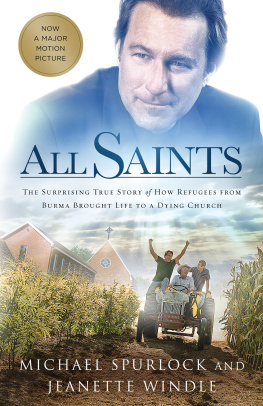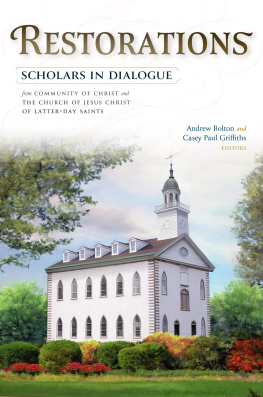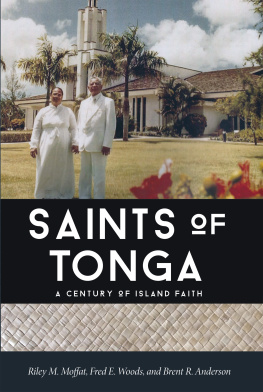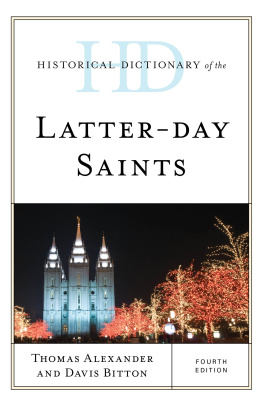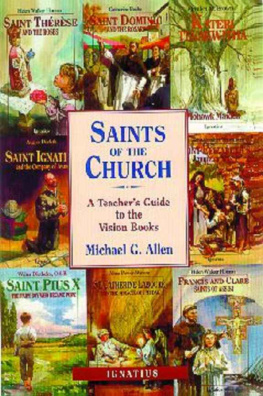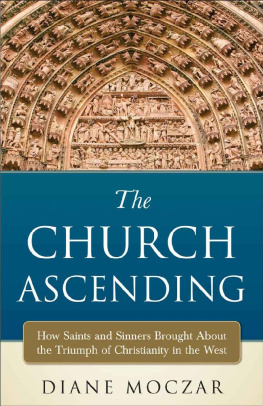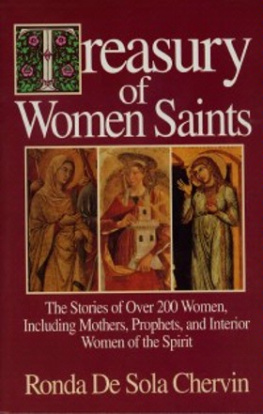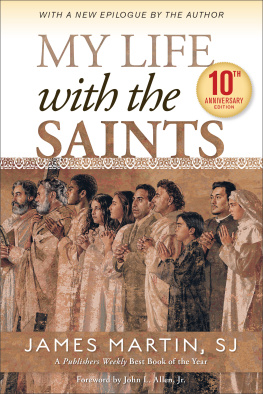But Jesus answered them, My Father worketh hitherto, and I work.
Preface
A s I write this, my family and I have just returned from a pilgrimage to the Holy Land. As we visited many of the holy sites in Jerusalem, Bethlehem, Nazareth, and other places, I was more deeply aware of how present Jesus life seemed to me. Present in the sense of incarnate. The wonder and joy of our faith is that God did not despise the places and times he created, but humbled himself to come among us in time and place and act. It was curious to stand in the Jordan and tell my children that we were at the place, or very near to it, where the heavens were torn open, and the Spirit descended upon Jesus, and Gods voice was heard from heaven declaring that Jesus was his Son. Or to stand in the place where the Temple stood and recall that when our Lord was presented there as an infant the glory of the Lord filled the Temple as in days of old. Or even to see the stalls of the money changers near the Jerusalem gates and know that in some ways times havent changed much since Jesus days. But more than curious, being in those places gave me a sense of well-being that made it difficult to leave. In another time and place, Jesus was there in that same place where I was now, and when he was there he had been about his Fathers business.
The story told within the pages of this book is a story I am on intimate terms with because I lived much of it. I will admit that as the converging stories of Ye Win and Father Bu Christ, and many other men and women you will meet within these pages, came to life in the stark witness of words on page, I see that I have lived the most staid and bourgeois portion of this story. My own existential crises seem pitiful in comparison to the life and death struggle my brothers and sisters from Burma have endured. And yet, God used that convergence to his own good purposes.
Some years have passed since the events at the heart of this story. But it still lives within me, even though I have moved on to live in a different city and minister in a different church. It lives within me because it is a living story, and it is ongoing. When I was right in the midst of it I had a difficult time telling it, and as I was often asked, I found it difficult to explain what lessons to take away from it. I have come to know that there are many lessons or insights that can be derived from this narrative, and they keep revealing themselves to me like a spring that wells up from within, refreshing my understanding of what I experienced while vicar of my small, but growing, Tennessee parish.
Despite my difficulty explaining it or teaching from it, even when I was in the midst of the events, they resonated with me because the events were so familiar to me. They were familiar because they lived like the Bible reads. It was easy to recognize Gods hand at work in our midst because God is as constant as our needs are constant. At certain points in this story we needed water. How many times in Scripture have I read about God providing water to his people when they were in desperate need of it? So when we were in desperate need, and water appeared in unexpected ways from unexpected sources, we could readily say, Ah, God is here doing what God has always done. At certain times we needed a particular kind of human giftedness, and God sent us just the right man or woman to fulfill our need, and to help fulfill their sense of vocation. How many times in Scripture do a people in need receive a messenger that brings them the word or gift or skill just right for the moment?
At one point we confronted such a dearth of resources, we thought we might as well light a small fire, prepare our last meal, and lie down and die, yet God caused our meager provision to last far beyond our calculations. Indeed, those meager resources still endure even to the present, and they have always proved sufficient to the needs at All Saints, Smyrna. Our living echoed the lives of other men and women recorded in the Bible and provided comfort and encouragement to those of us living under Gods very present providence. Our story, though new and alive to us, is part of the old, old, but ongoing story of Gods life and work here on earth. We were living it during the events recorded within these pages, and we are still living it.
In a world where our fellows often ask, Where is God? Is he real? Does he notice? Does he care? I can attest that he is very real, he does notice, he does care, and he is right here, right now, alive and well and very much about his business. There was no reason for All Saints to have survived, much less thrived, after it imploded because of human pride and willfulness. If there is no God, what would it matter anyway? But there is one, and only one, and he was in our midst binding up the wounds, commanding us to take up our mats and walk, and leading us through valley and shadow into a place of light, peace, purpose, work, and resurrected life. Why? Because that is what God does for people who long for him, love what he commands, and submit to being led and transformed by him.
What you will find here is a story about a living God, speaking, calling, and seeking to relate to ordinary men and women. You will also find ordinary men and women speaking to God, crying out to him, hearing him, and then trying to live out what they were hearing God ask them to do. You will read about people relating to one another and to God as if it really does matter. What resulted from those relationships is miraculous, but also familiar, and ordinary. Ordinary in the sense that God has always lived, breathed, and moved in these ways. To me, that is a great comfort. God is alive, well, and still at work in his creation and with his people.
But Jesus answered them, My Father is working still, and I am working (John 5:17 RSV ).
The Reverend Michael Spurlock
Lent 2017
Prologue
T he smell was among the worst elements of this never-ending war, even for a battle-hardened soldier like nineteen-year-old Ye Win. The beauty over which he stood guard made the contrast even more stark. Those who compared southeastern Myanmars hill country to the biblical garden of Eden were not far off. Flowering trees and orchids in yellows, oranges, pinks dotted the scrub jungle. Crystal-clear streams and waterfalls fed mountain folds and valleys, where villages of thatch and bamboo nestled among food crops, fruit trees, and banana palms. Massive teak trees and other hardwoods raised emerald umbrellas to the heavens.

